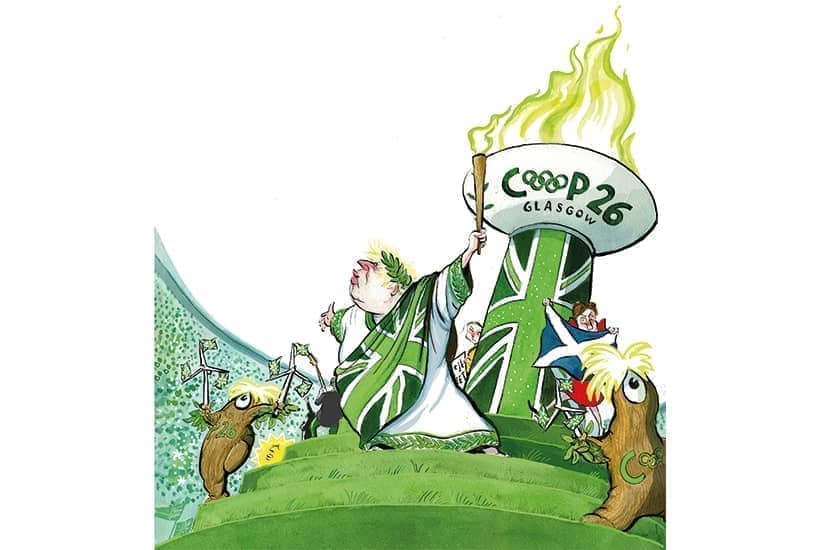The green agenda is leading the news, with Boris Johnson on a PR mission to sell his environmental plans to the country (and sceptical Tory MPs) ahead of Cop26. Several documents were published last week, including the much-delayed Heat and Building strategy, the Net Zero strategy and the Net Zero review which is meant to offer some idea of how much exactly the whole agenda will cost.
Downing Street is pushing their environmental policies as a gradual transition rather than something that could drastically impact household finances. But how might this work in practice? Tomorrow, The Spectator is hosting its own virtual Cop26 summit (you can get tickets — free and open to all — here).
It’s not just a voter backlash the government is worried about
The morning will open with a keynote speech from Dieter Helm, professor of energy policy at New College, Oxford, as well as a discussion with Spectator editor Fraser Nelson at 9.30am.
So, how does the UK get to Net Zero without mass economic sacrifice? Kate Andrews will discuss one way: nuclear power. At 10am, she will be joined by Stephen Pollock, Emma Pinchbeck and Rachael Glaving to consider the potential and drawbacks of nuclear energy.
What was made clear last week is that the government is banking on technology and industry coming to the rescue. So, it needs to work out what can motivate people to go green. Kate Andrews will be joined by Fagan MacNeil, Rory Sutherland and Bridget Williams at 11.15am to consider the various incentives the government can use, from moral nudges to economic stimulus.
It’s also the case that people have a role to play in their everyday lives. Amid all the noise, it’s hard to know what’s most important to go green. Is it flying less? Is it going vegan? Is it looking at an electric car? Cindy Yu will be joined by Tim Loughton MP, Anne-Charlotte Mornington, Lindsay Miles and Dr Alan Whitehead at 12.30pm to discuss daily tips for greener living.







Comments